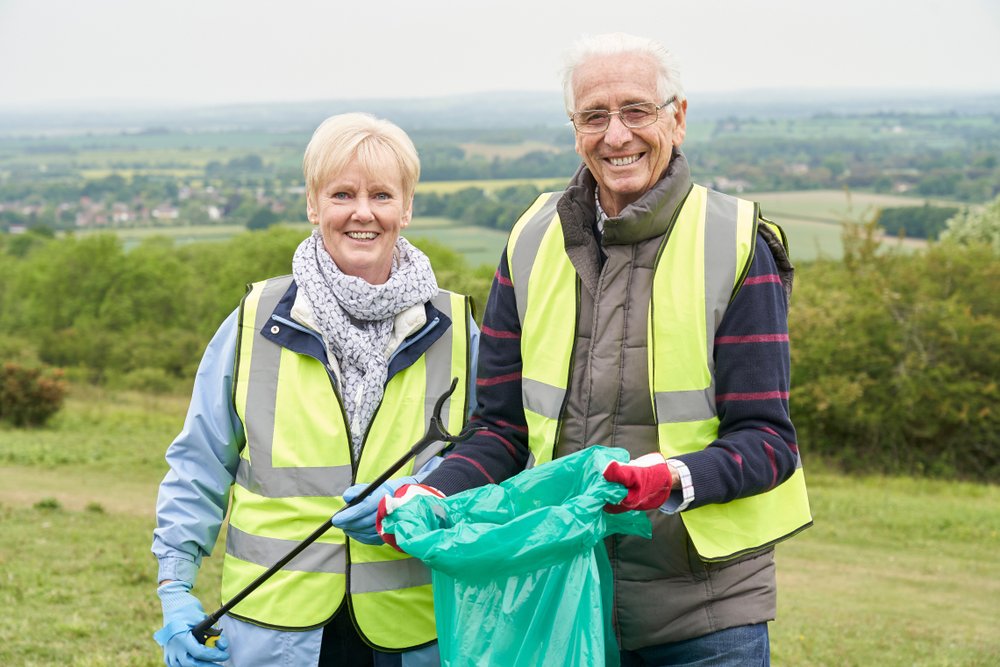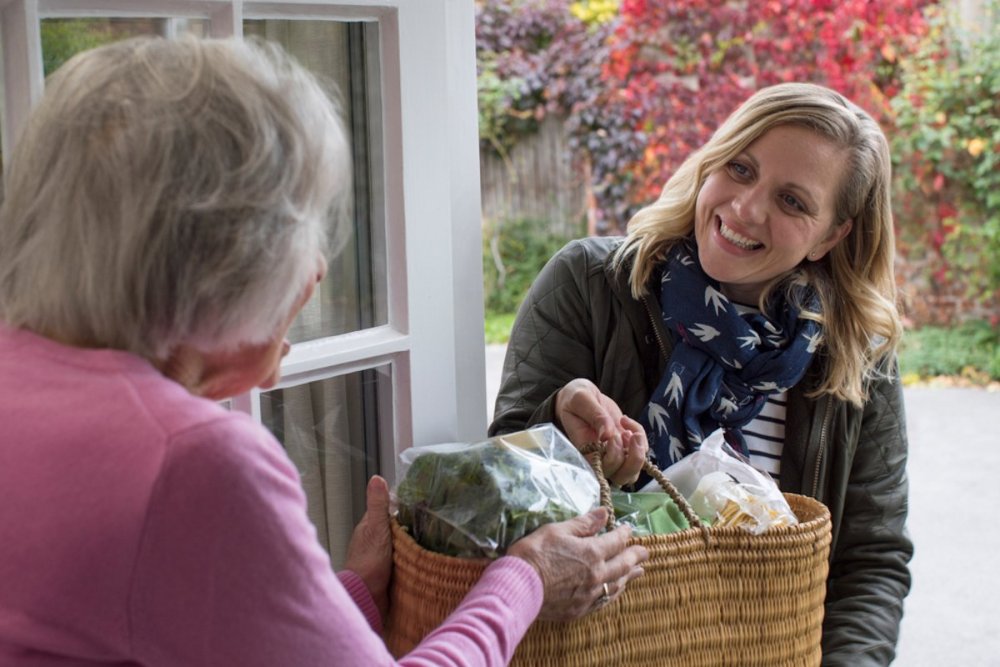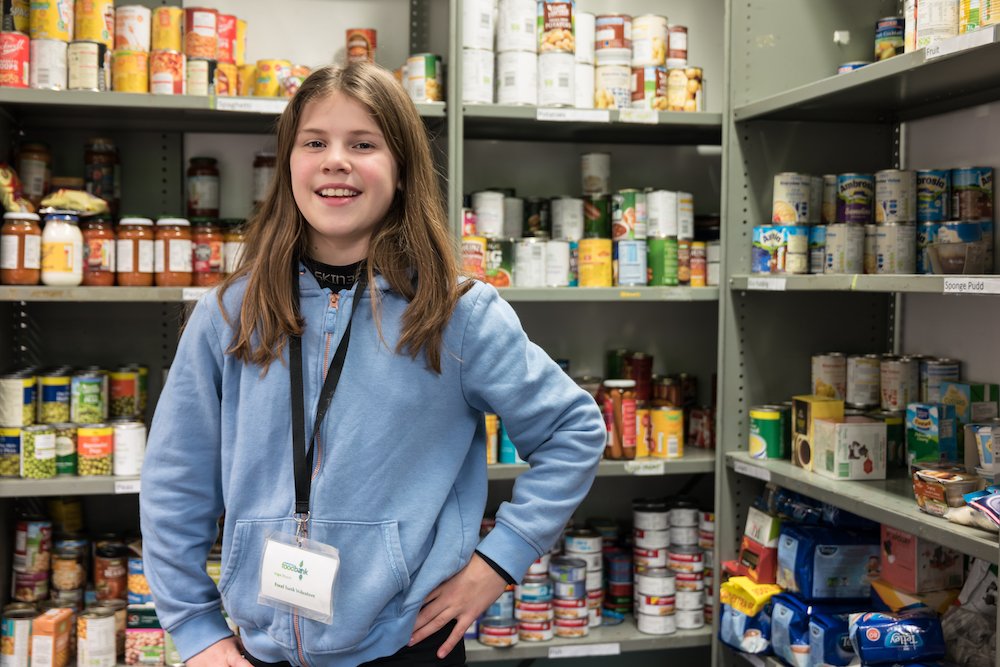Humans aren't meant to be alone all the time: connecting as part of a meaningful community is important for our mental well-being. Dee Marques discovers seven ways in which community belonging can benefit both you and those around you.
Humans are social beings, and the need to belong is deeply ingrained in our nature. That’s why since the beginning of time humans have been drawn to creating their own communities. Today, important communities continue to be formed around different shared interests of characteristics, such as religious or spiritual groups, professional associations, neighbourhoods, volunteer groups or sports clubs.
In fact, belonging to a group or community we can identify with helps us develop a stronger sense of personal and collective identity. It can also give a boost to our self-esteem and to our willingness to take on the world and make our dreams happen. Being part of a community is one of the 10 main keys to happiness. But the importance of community goes beyond that.
So, just why is community important? To answer the question we can look at what happens if we don’t have community we can call our own. Since we’re inherently sociable beings, feeling disconnected from others can deeply affect our self perception and emotional health.
Litter picking is a powerful community action shutterstock/SpeedKingz
Indeed, some studies have linked the emotional strain of loneliness caused by social isolation to physical illness, including sleep disorders, heart disease and a weakened immune system. A Public Health study done in Canada even ranked social isolation as a higher risk factor for premature death.
• JOIN US! Sign-up to happiness.com and connect with our caring community •
Having said that, the past year or so has been a strange one for social interaction and personal relationships. On the one hand, lockdown measures and work-from-home arrangements have made it harder to meet and connect with others, so feelings of isolation and loneliness are on the rise.
However, that hasn't undermined the importance of community. On the contrary, these changes have prompted many people to reconsider the significance of neighborhood feeling, bringing the concept of meaningful belonging back into the spotlight.
“Belonging to a group or community we can identify with helps us develop a stronger sense of personal and collective identity. It can also give a boost to our self-esteem.”
For example, during the past few months we have seen communities coming together with fundraising initiatives to help those struggling financially or otherwise. Others have learnt to sew just to be able to make PPE – such as face masks – and delivered them to those who needed them the most.
The importance of community: 7 benefits it offers
To understand why neighborhood action and community is meaningful and beneficial to our well-being, we can look at seven ways in which belonging to one can help us.
1. Support and safety
Living with uncertainty has become the norm during the COVID pandemic. This has made it more important than ever to have a strong support network in place. Indeed, one of the main reasons behind the importance of community is that it can help fight feelings of hopelessness and give us the certainty that we are safe when surrounded by our community. Furthermore, the benefits go both ways, since supporting others also gives us a boost.
2. Connection and belonging
Togetherness is so central to our experience as humans; that feeling we are part of something bigger can help give meaning to our lives. Finding others with the same values, interests, and world views makes us realise that we’re not alone and makes us feel valued. Indeed, belonging highlights why community is necessary: being accepted into a group gives us a stronger sense of self and can help us cope with negative experiences and feelings.
3. Influence
Sometimes we need an extra push to stop us from falling into unhealthy habits or thoughts. Experiencing the positive influence of like-minded people is another reason behind the importance of community. Studies confirm that our overall health is partly determined by our ability to look after ourselves, but sometimes we simply don’t feel capable of it. Communities can influence us and motivate us to invest in our well-being and to bring positive changes to our lives.
MORE LIKE THIS:
- Happy habits – 12 ways to boost your joy levels daily
- What is Pebbling? What Penguins Can Teach Us About Stronger Relationships
- Why is Volunteering Important? Here are 7 Benefits it Offers
4. Sharing
Sharing activities, ideas and feelings reinforces not only our sense of self, but also adds worth and value to the community. Indeed, the more the merrier applies in this case! That’s not to mention the huge beneficial effect sharing can have on mental health: higher engagement, positive emotions, and empowerment are only some of the benefits. Sharing is caring.

Support is an important community action shutterstock/Daisy Daisy
5. Learning
Communities are usually built around common interests, but that doesn’t mean they’re homogeneous. We can still find people within them who have different views, experiences, or beliefs, and learning from them can help us reach insights that we may not have reached on our own.
6. Acceptance
Developing community bonds with others who have different views may be challenging, but it’s also an opportunity to practise acceptance. I had a personal breakthrough when I read this article and understood that acceptance doesn’t necessarily imply agreement.
“One of the main reasons behind the importance of community is that it can help fight feelings of hopelessness and give us the certainty that we are safe.”
This valuable lesson can bring peace and relief. And there’s another side to acceptance: self-acceptance. Community belonging helps us accept that sometimes we’re strong and sometimes we’re vulnerable and that we need the support of others to avoid unnecessary emotional struggles and pain.
RELATED: 5 Ways to Develop Your Moral Courage
7. More connections, more chances of success
The importance of community goes beyond the personal sphere and extends to professional development. Since the pandemic begun we’ve seen a stronger focus on supporting local businesses, so this is a good place to start networking and building strong relationships. You never know where that could take your business idea or professional life.
The importance of community action
Communities are not abstract entities, so practical actions are needed to really take the importance of community further and make a difference. This is the basis of so-called community action initiatives. In fact, these are so important to society that many local authorities now have dedicated resources and invest in community building programmes.
• JOIN US! Share your life story and challenges at happiness.com and make new friends •
An example is the Community Organisers initiative, launched in the UK to give communities the tools to identify and solve local challenges by bringing everyone together. The Community Organisers Stafford group was aware that many people struggled to make ends meet and set up a social supermarket that was supported by local shop owners, grocery stores and volunteers.
 A young food bank volunteer shutterstock/HASPhotos
A young food bank volunteer shutterstock/HASPhotos
Surplus food was donated and then sold at discounted prices that even those on a low income could afford. In just a few months, the programme was feeding more than 100 local families. It helped stigmatise financial hardship as well as remind residents that the community is there for them.
On that note, it’s essential to remember that community action doesn’t need to involve grand gestures. Sometimes the best way of contributing to our community is to give: be it time, money, or kindness to others with small daily gestures. One thing is for sure: if we look around us with the intention to help, we will find ways of doing it, and in the process we will be contributing to making our community stronger.
We can all do something to build meaningful human relationships and benefit from the healing power that comes with a sense of community and a richer perspective. So, why not set the goal of developing deeper bonds with others in our immediate community? Today is a good day to starting looking for or creating your own network and to begin to experience the importance and power of community. •
happiness.com | The fine art of being: learn, practise, share
Are you a happiness.com member? Sign up for free now to:
■ enjoy our happiness magazine
■ share and support in our happiness forum
■ develop with free online Academy courses
Written by Dee Marques
 A social sciences graduate with a keen interest in languages, communication, and personal development strategies. Dee loves exercising, being out in nature, and discovering warm and sunny places where she can escape the winter.
A social sciences graduate with a keen interest in languages, communication, and personal development strategies. Dee loves exercising, being out in nature, and discovering warm and sunny places where she can escape the winter.


Join the conversation
You are posting as a guest. If you have an account, sign in now to post with your account.
There are no comments to display.